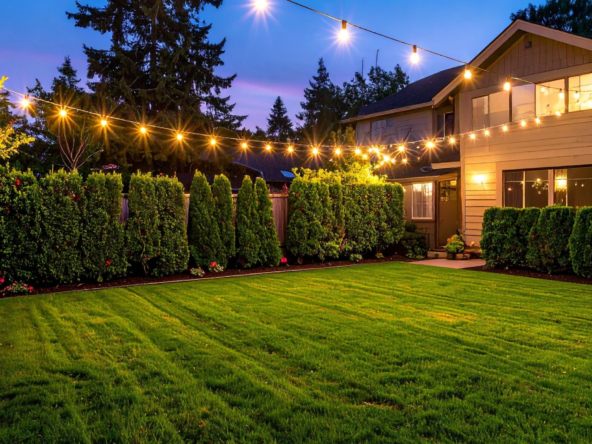TLDR
- HOA fees range widely by neighborhood, amenities, and housing type in Eagle.
- Read CC&Rs early to understand design rules, rentals, pets, and parking limits.
- Budget for one-time fees and potential special assessments in your purchase plan.
- Use pre-approval and HOA review timelines to strengthen your offer and confidence.
What do HOA fees and rules really mean for Eagle buyers?
For many first-time homebuyers, HOAs feel like a mystery until they are under contract. In Eagle, HOAs are common in both entry-level subdivisions and luxury communities, and they touch everything from your monthly budget to what color you can paint your front door. In a cooling market where the median sale price recently hovered near the high six hundreds, buyers have more leverage, yet HOA due diligence remains essential. Local MLS data shows homes taking around two months to sell on average, and the sale-to-list ratio has been near 90 percent, which means buyers are negotiating meaningful concessions. That creates an opportunity to request HOA documents early and negotiate repair credits or dues offsets when appropriate.
As an Eagle Idaho realtor, I remind clients that HOA rules are not just restrictions. They can help preserve property values, maintain landscaping, and provide amenities that raise quality of life. Communities like Two Rivers, Legacy, Island Woods, Redstone Ranch, and Riverstone each have distinct fee structures and controls. Understanding these differences helps you compare Eagle ID homes for sale apples to apples and decide if the lifestyle and long-term costs match your priorities.
Here is how I define it as Chris Budka:
- HOA dues fund shared services such as landscaping, irrigation, pools, and paths.
- CC&Rs and design guidelines set the standards for exterior changes and use.
- Financials and meeting minutes reveal stability, reserves, and upcoming assessments.
How do HOA costs work in Eagle and what should you budget?
HOA costs in Eagle typically fall into three buckets. First are recurring dues, often billed quarterly. In standard subdivisions the average total is roughly $300 to $600 per year. In master-planned communities with lakes, pools, and clubhouses, annual dues often range from $1,200 to $2,500. In luxury or gated neighborhoods with full amenity packages, dues can exceed $2,500 per year. For example, Redstone Ranch shows quarterly dues around the low two hundreds. Some neighborhoods publish monthly equivalents on listings even though they bill quarterly, so compare on an annual basis.
Second are one-time transfer costs when you buy. Plan for an HOA setup or transfer fee, commonly $250 to $350, plus a resale certificate or disclosure package fee in the $100 to $300 range. Some communities include a capital contribution equal to one or more months of dues at closing. Third are special assessments, which are rare in well-funded single-family HOAs but can arise if reserves are inadequate or large projects appear.
If you use down payment assistance through the Idaho Housing and Finance Association, remember that HOA dues count toward your total housing expense and can affect debt-to-income calculations. During the home buying process in Eagle Idaho, I compare at least three properties’ total monthly costs, including dues and insurance, so you see the full picture.
What do fees typically cover?
- Common-area landscaping, water, and pressurized irrigation
- Pool, clubhouse, and fitness space maintenance where applicable
- Pathways, ponds, and entry monument upkeep
- Some trash or recycling contracts, varied by community
- Exterior maintenance on certain townhomes or condos
Which Eagle neighborhoods illustrate different HOA experiences?
Eagle’s neighborhoods offer a spectrum of HOA lifestyles. Legacy, north of Floating Feather, shines with lakes, trails, and a golf course feel that attracts many first-time homebuyers seeking amenities without full luxury prices. Two Rivers, near Eagle Road and the Boise River, represents the high-amenity luxury tier with manicured landscaping, water features, and stricter architectural controls. Island Woods, close to my office at 408 S Eagle Rd, Suite 205, combines river access, trails, and beautiful common areas with dues that are often described monthly but billed quarterly. Redstone Ranch near Stephen C. Guerber Park offers an attainable path with manageable quarterly dues and quick access to schools and recreation. Riverstone and Cadia River District showcase newer master-planned options north of Highway 55 with evolving amenity packages.
- Neighborhood 1
– Details – Watchouts – Typical timeline
Legacy – Details: Large lakes, courts, paths, and community pool. CC&Rs guide exterior design, fencing, and landscape standards. Strong visual appeal and community programming. – Watchouts: Plan for higher amenity dues. Verify any upcoming capital projects in meeting minutes. Check lake and irrigation policies. – Typical timeline: Architectural review for exterior changes is often 2 to 4 weeks. Resale docs typically arrive within 5 business days once ordered.
- Neighborhood 2
– Details – Watchouts – Entry-level path
Redstone Ranch – Details: Entry-friendly pricing relative to Eagle averages, quarter-billed dues around a couple hundred dollars, direct access to Guerber Park and solid school proximity in West Ada. – Watchouts: Confirm landscaping responsibilities per lot type, street parking limitations, and any rental caps if house hacking is part of your plan. – Entry-level path: FHA or conventional with IHFA assistance fits well. I have helped first-time homebuyers pair 3.5 percent down with down payment aid to land here comfortably.
For families prioritizing parks and community events, note the ongoing Heritage Park renovation in downtown Eagle and the city’s extensive park system. Proximity to the Ada/Eagle Bike Park and greenbelt connections through the Ada County Highway District also matters for everyday living.
What are the pros and cons of buying into an HOA in Eagle?
Pros:
- Curb appeal and amenity maintenance that supports property values over time
- Predictable standards for neighbors, reducing disputes and deferred maintenance
- Access to pools, lakes, paths, and community gathering spaces
Cons:
- Additional monthly or quarterly costs that affect loan qualifying
- Rules on design, parking, pets, and rentals that may limit flexibility
How do I evaluate an HOA and avoid surprises during the home buying process in Eagle Idaho?
A strong HOA review starts early. When we identify a home, I immediately request the CC&Rs, bylaws, budget, reserve study, insurance certificate, meeting minutes for the last two years, and the current resale disclosure. Within your inspection period, we schedule time to read them together and flag any red lines such as rental bans, strict parking rules, fences, or color restrictions that do not fit your lifestyle.
I also review financial health. A healthy single-family HOA often maintains reserves sized to its long-term maintenance schedule. If reserves look thin, I check minutes for past discussions about special assessments. For condo or townhome communities where exterior maintenance is included, I test monthly dues against the scope of responsibility. If the HOA covers roofs and siding, higher dues may be justified.
One of my clients loved a lakefront property in a master-planned neighborhood. The budget looked fine, but meeting minutes showed shoreline repairs planned the following year. We negotiated a seller credit to offset the expected dues increase. Another client searching Eagle ID homes for sale wanted to add an RV gate post-closing. The ARC guidelines prohibited side-yard RV parking. We pivoted to a similar home nearby with more flexible rules and saved months of frustration.
For added clarity, first-time homebuyers can take a HUD-approved education course and speak with a counselor through HUD-approved housing counselors. If you are eligible for VA or USDA financing, explore benefits via the U.S. Department of Veterans Affairs and USDA Rural Development. For school and boundary questions in West Ada, use the West Ada School District website. If mobility or transit matters, look into Valley Regional Transit’s Beyond Access program.
FAQs
1) How much are HOA fees in Eagle and how are they billed? In standard subdivisions, expect roughly $300 to $600 per year, typically billed quarterly. Master-planned communities commonly run $1,200 to $2,500 per year depending on amenities like pools, lakes, and clubhouses. Luxury or gated neighborhoods can exceed $2,500 annually. Listings sometimes show a monthly equivalent even though billing occurs quarterly, so always compare on an annual basis when budgeting and pre-qualifying.
2) What do HOA dues usually cover in Eagle communities? Dues commonly fund common-area landscaping, pressurized irrigation, pathway and pond maintenance, pool or clubhouse care, and sometimes contracted trash service. Certain townhomes and condos include exterior maintenance like roofing and siding, which raises dues but lowers ownership chores. Always confirm the scope in the CC&Rs and the budget, since inclusions vary by neighborhood and housing product across Eagle.
3) What one-time HOA costs should first-time homebuyers plan for at closing? Most Eagle HOAs charge a transfer or setup fee of about $250 to $350. Many require a resale certificate or disclosure package costing $100 to $300. Some add a capital contribution equal to one or more months of dues. Ask for all HOA fees on page one of your offer, then verify when the resale certificate arrives so there are no surprises at the closing table.
4) How do HOA rules affect renting rooms or running a short-term rental? Rental rules vary widely. Some Eagle subdivisions allow long-term rentals with minimum lease terms. Others require owner occupancy or limit the number of rentals per block. Short-term rentals may be restricted or prohibited. If you plan to rent a room or consider a STR in the future, we will confirm rules in the CC&Rs, bylaws, and any city policies before you finalize your offer.
5) How can I gauge whether an HOA is financially healthy? Review three items together. First, the operating budget and reserve study. Second, the balance sheet for reserve adequacy relative to planned projects. Third, board meeting minutes for discussions of deferred maintenance or upcoming assessments. A stable HOA has realistic reserves and consistent funding for long-term items. If you see thin reserves and big projects looming, we can budget accordingly or negotiate credits.
6) Do HOAs slow down improvements like adding a pergola, painting, or landscaping? Most HOAs require Architectural Review Committee approval for exterior changes. Typical turnaround is 14 to 30 days with complete submittals, though some luxury neighborhoods take longer. Before closing, I help you review design guidelines so you know what is allowed and how the process works. planning ahead avoids delays, especially during peak building seasons when committees meet less frequently.
Conclusion
The bottom line Buying into an HOA in Eagle can be a smart move when you understand the true costs and the rules that shape daily life. Strong CC&Rs and well-funded budgets protect the neighborhood’s integrity, while amenities deliver value that many buyers would not build on their own. On the flip side, dues, one-time fees, and design controls require careful review. As your Eagle Idaho realtor, I bring neighborhood-level insight, MLS data, and practical experience to map the right fit. If you want expert guidance on the home buying process in Eagle Idaho, I am ready to help you compare options, negotiate confidently, and move in with clarity.










